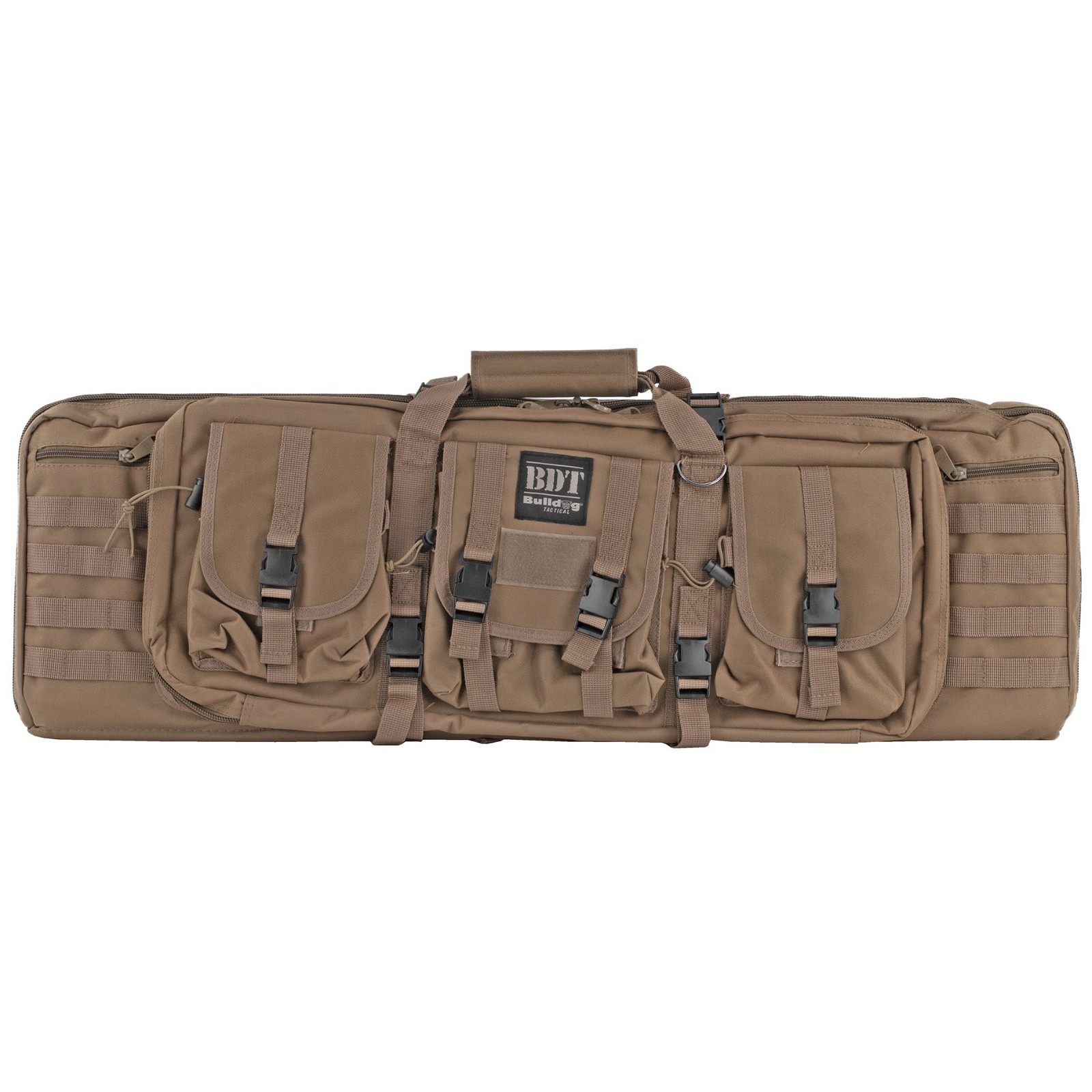It’s almost 2025, can’t you just walk into your local sporting goods store or gun shop and walk out with a shiny new rifle, pistol, or shawty?? Not in today’s world Buck-O! There’s a handful of steps you must complete before you get to pass GO and walk out packing heat. This is your 2025 guide to buying a gun the right way.
Now, gun laws vary widely state-by-state. On top of that, we have even seen laws and regs change overnight! Think of it as your gun-buying roadmap, we’ll point you in the right direction, you get yourself to the finish line.
Table of contents
State & Federal Gun Laws
First things first, It’s smart to have a general sense of the gun laws in your area. Since state gun laws vary from federal ones, give your state and local regulations a quick Google.
Things to fixate on regarding your state regs:
- Any banned models or features – A BIG one state to state.
- Permits and waiting periods.
- Minimum age to purchase different types of firearms.
- Rules on private sales.
The fact of the matter is, that there are states that might require you to pay for additional permitting fees or courses before you can buy your next Desert Eagle or Glock… Know what to expect; follow this quick guide for the big stuff, and be shooting downrange in no time!
Select the Right Firearm for Your Needs
Now for the exciting part – picking your new firearm! First decide if you want a slick handgun, reliable shotgun, or classic rifle. Consider how you plan to use it – self-defense, hunting, target practice, just plain ol fun? This will help narrow your options.
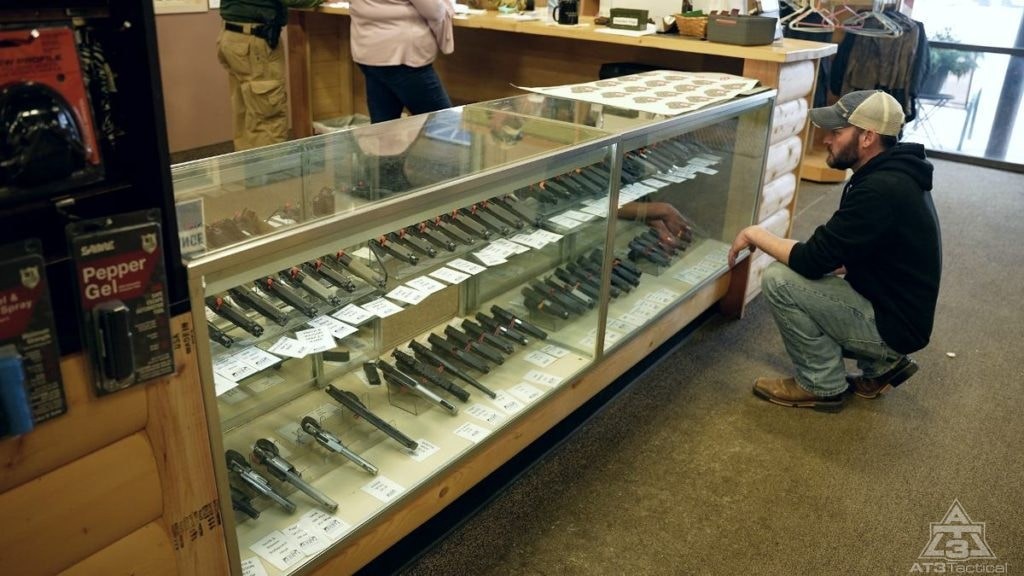
Once you’ve got a type in mind, start researching specific models. Talk to the dealer, read online reviews, and watch videos to learn about different makes. Consider caliber, action, and accessories that fit your budget.
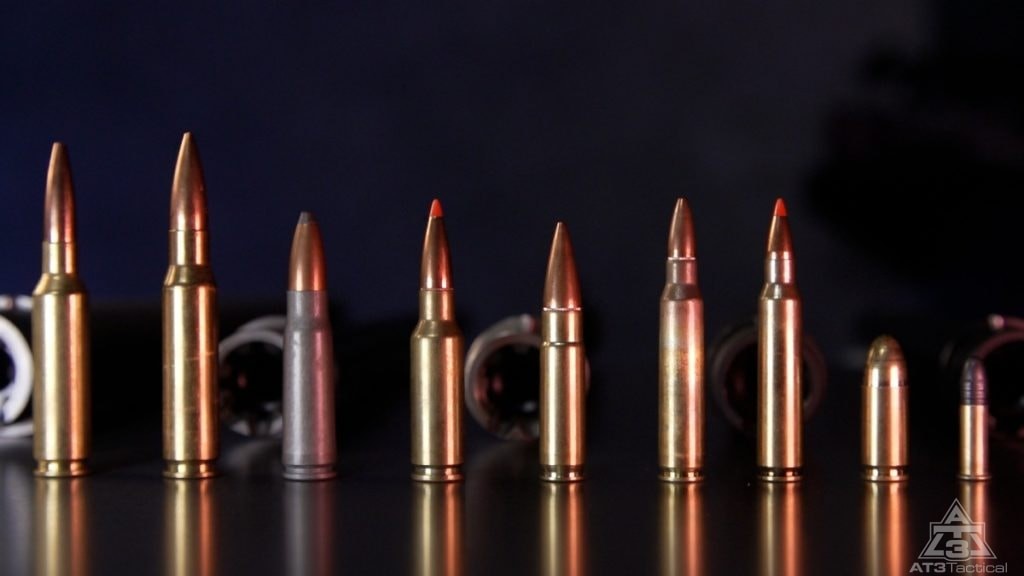
If an AR-15 is slated #1 on your list, allow us to introduce you to the wide world that the AT3 Tactical Team are experts in. We have an Ultimate AR-15 Guide to answer all your black rifle questions!
If you are a visual learner like myself, we have a 15-episode series on the AR-15 to get you started below.
Get hands-on with different models – choosing your first firearm is a personal decision. Take time to find one that feels right in your hands. It’s normal to be drawn to several options at first. Chat with experienced owners to hear why they picked their favorites. With an open mind, you’ll soon find the perfect sidekick. An FFL is a great place to start.
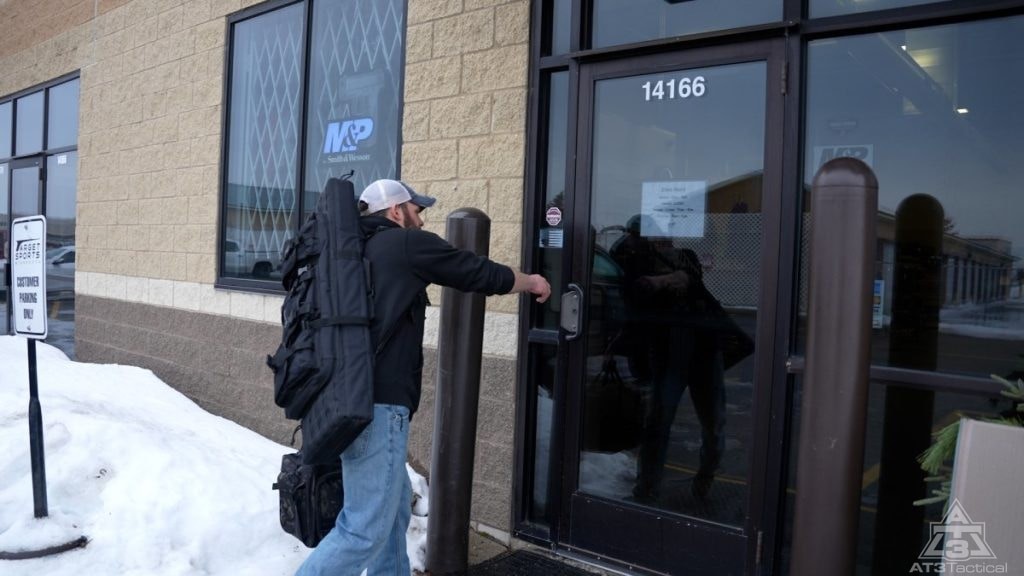
Find a Federal Firearms Licensed Dealer
If you’re buying from a licensed dealer, they’ll have a Federal Firearms License (FFL) to legally sell guns. That means filling out paperwork and a background check. We’ll chat more about private individual sales between buddies later. For now, just know that licensed dealers have equal paperwork, which is 100% normal.
Reach out to dealers in your area to ask about:
- Inventory – Do they have that gun on your list?
- Shipping Times – If they don’t have what you need can they get it and how long will it take?
- Online Sales – If you need to order a gun online you still need to go through an FFL, Transfers still need to be in your state, but there are a few specific differences. We’ll cover more on that in the very near future.
- Transfer Fees – How much do they charge to have a gun you bought somewhere else transferred through them (i.e. online to the dealer to customer)?
Finding an FFL you connect with will make buying your first and future firearms a cinch. Don’t be shy – ask lots of questions so you feel comfortable and informed every step of the way.
Pass The Background Check
Here’s where things get serious – the background check. If you have a clean record, you’ll likely breeze through it. Fill out Form 4473 and any state forms required for the background check. This screens for criminal records, mental health issues, or other red flags that could prevent buying a gun.
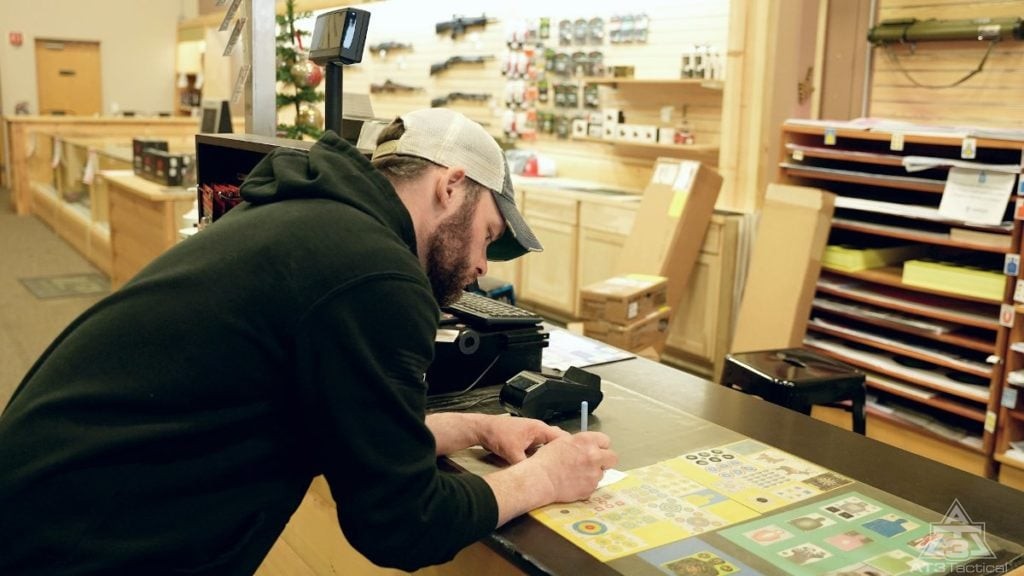
Things to remember here:
- You cannot purchase a firearm for someone who cannot legally own one.
- The check will screen for things that would make it illegal to own a firearm. Things such as felonies, indictments for felonies, fugitive status, some drug offenses, being deemed mentally defective, dishonorable discharge, restraining orders, domestic abuse crimes, renounced US citizenship, or illegally in the country.
- The FFL facilitating the background check has no say in your being proceeded, delayed, or denied. These decisions are made by the thoughtful folks at the FBI. Be respectful to your FFL, they are only the middleman as far as your background check goes.
- You cannot do your background check before you stop in or at home. It is in person and on the date of purchase. Check your state regs. You might need a permit to purchase before getting to this step.
- Minor offenses and blips in your background may lead to a delayed status. This is where the FBI needs to look into those infractions or instances in order to make a more informed decision.
As long as you’ve got no skeletons in your closet, the whole system check will take no more than a few minutes using the FBI’s National Instant Criminal Background Check System (NICS). What happens if your check doesn’t go through right away? These are the three possible responses that can come back, and why.
Proceed, Delayed, & Denied
To reiterate: Your FFL has no say in what your background check comes back as nor are they told why it comes back the way it does. They cannot “pass” or “fail” you. Nor can they tell you what answers to put down. Read things slowly and carefully. If you make a mistake, that is on you.
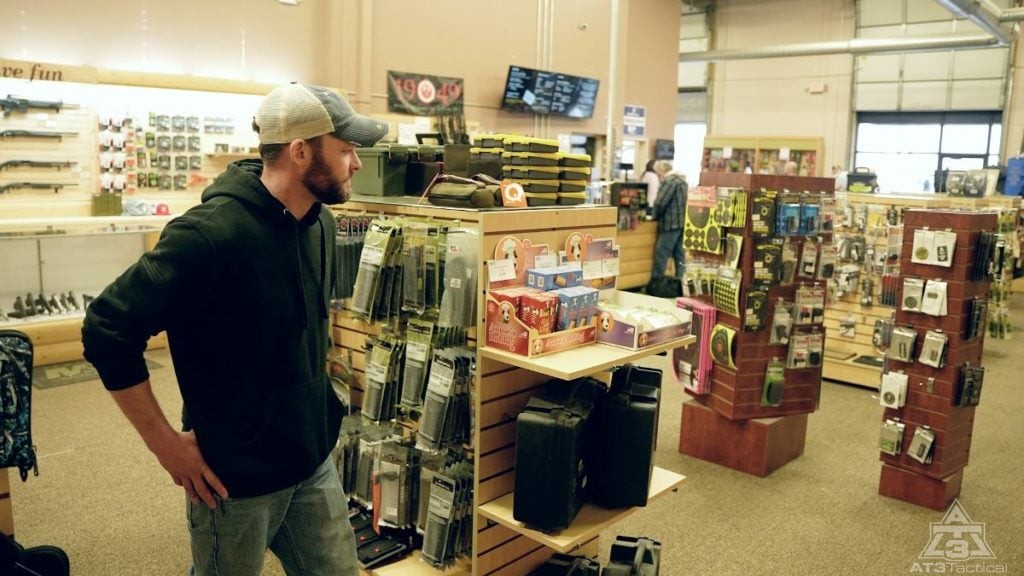
Proceed Status
A proceed status is the green light! It tells the FFL that they can legally transfer a firearm to a given individual. These will often come back instantaneously, but there is such a thing as slow days at the FBI. Especially in times of countrywide civil unrest and so on. If you get the proceed you can expect to get the thumbs up every time after unless your record or name changes.
Delayed Status
To reiterate what was stated earlier: Minor offenses and blips in your background may lead to a delayed status. This is where the FBI needs to look into you and your situation (and potential infractions) further.
Small infractions such as a DUI can become a red flag on the FBI’s end. Regardless of the minor offense, they need to look into it to make sure it didn’t involve anything that would bar you from owning a gun.
Mistakes do happen! BUT it is extremely uncommon that it is a mistake. Sometimes a delay (or even a denial) occurs if you have a similar name or personal details as someone who is prohibited from owning a firearm. This causes wires to get crossed in the system.
The Brady Date: If you are legally allowed to own a gun, the dealer can proceed with the sale after 3 business days pass from the initial check. This is of course if no responses come back or a proceed pops up earlier. Just a small hiccup – you aren’t in trouble and your background check will get straightened out soon!
While the law allows transfers after 3 days without a response, it’s ultimately up to the dealer’s discretion. Smaller shops are often willing to proceed after the waiting period expires. But larger “big box” retailers may not, since an FBI denial after the transfer (rare) could become a major headache. Though legal, some dealers avoid potential issues by waiting for an explicit proceed notice, even after 3 days have passed.
Some states have mandatory waiting periods regardless of a delayed or proceeded status. I can be for long guns, handguns, or shotguns. This once again harkens back to checking your local laws.
Denied Status
Denied statuses are a whole other story. This is the government basically saying “We know who you are and we know you cannot legally own a firearm”. If this happens to you and you feel it is incorrect, the FFL should give you your NICS number in order for you to appeal the denied status to the FBI.
It should go without saying that in this situation, no firearms are being transferred and nothing is being purchased.
DO NOT ask anyone to purchase a firearm on your behalf if you get denied. This is ILLEGAL and can result in felony charges.
Payment & Fees
A given retailer/FFL will often have fees associated with purchasing a firearm beyond just the price of the gun. These include:
- FFL transfer fee – The most common fee tacked onto a purchase when you are NOT buying your gun from the physical FFL dealer. This typically applies to online purchases sent to your choice of FFL for processing or for FFL-facilitated, person-to-person, sales & transfers. These places legally have to keep the paperwork FOREVER. A small fee is the least you can do.
- Sales tax
- State-specific fees.
- Most fees range from $20-$75.
Be sure to ask your gun dealer what payment methods they accept. Having payment ready ahead of time will ensure the process goes smoothly.
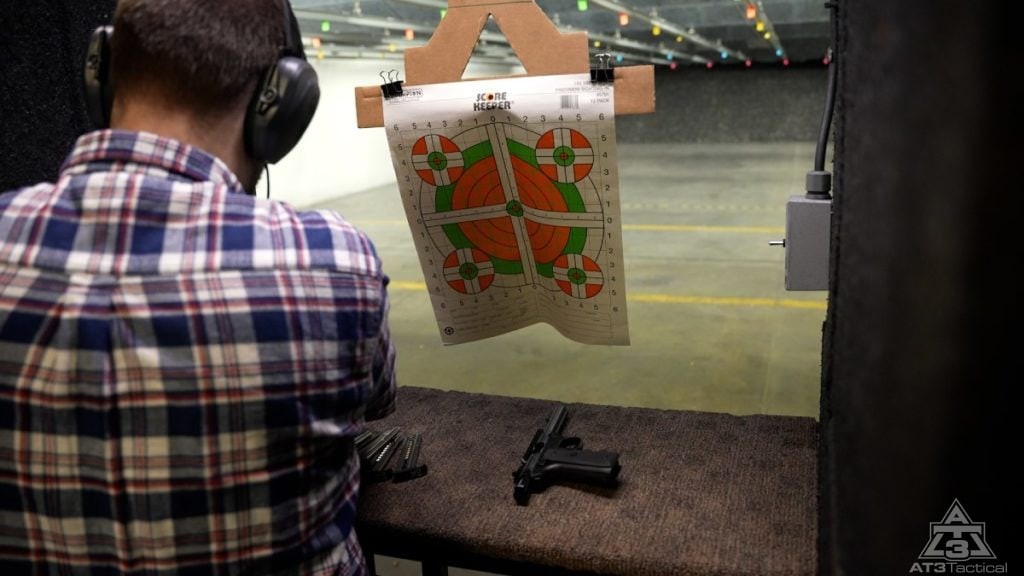
Taking Your New Gun Home
Carefully transport your new firearm home according to local laws. In most cases, the box containing your firearm constitutes a “gun case” for transportation. Feel free to ask your dealer any questions or concerns you may have. I am sure they would be happy to earn your further business.
Consider investing in a good gun safe, lock box, or even trigger locks, and think about further courses on proper shooting techniques. We know you’re eager to saddle up and ride – just make sure you do it safely.
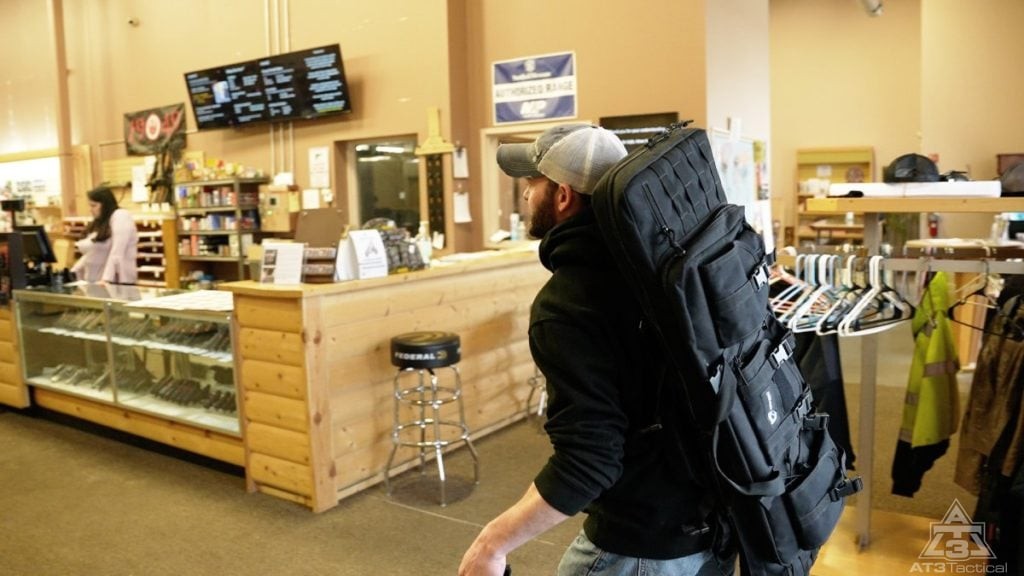
FAQs
The minimum age to buy a gun is 18 for rifles and shotguns and 21 for handguns. Some states set the limit higher though, so check your local laws.
Felony convictions, domestic abuse charges, drug use, and involuntary mental health commitments are some of the main barriers to passing a background check.
At a minimum, you’ll need to complete Federal Form 4473. Most states require additional forms for permits, registrations, bills of sale, etc.
When running background checks, the FBI’s NICS system compiles records from multiple federal, state, and local agencies and databases.
A valid state-issued photo ID and any state licenses or permits are typically required. Some states require safety certificates as well.
If your state has a waiting period or you are placed in a delayed status on your background check waiting periods range from 3 to 10 days generally, but some states have longer or no mandated waiting periods.
No, you can only take possession of a handgun in your state of residence. But you can buy one online from another state, as long as it’s shipped to a local dealer in your home state for transfer. It needs to be a legal firearm to own/be transferred in your state as well.
One Last Tip
If there’s anyone that knows the AR-15 platform, it’s the US military. As a special offer for our readers, you can get the Official US Army Manual for AR-15/M4/M16 right now – for free. Click here to snag a copy.



